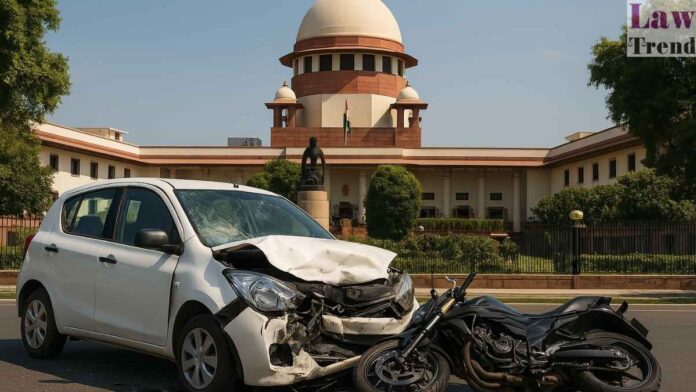The Supreme Court of India has ruled that allowances forming part of a deceased’s salary must be included when computing compensation in motor accident claims. In a significant judgment, the Court also held that any deduction towards income tax from the compensation amount must be calculated based on the applicable tax slabs for the relevant
To Read More Please Subscribe to VIP Membership for Unlimited Access to All the Articles, Download Available Copies of Judgments/Order, Acess to Central/State Bare Acts, Advertisement Free Content, Access to More than 4000 Legal Drafts( Readymade Editable Formats of Suits, Petitions, Writs, Legal Notices, Divorce Petitions, 138 Notices, Bail Applications etc.) in Hindi and English.




